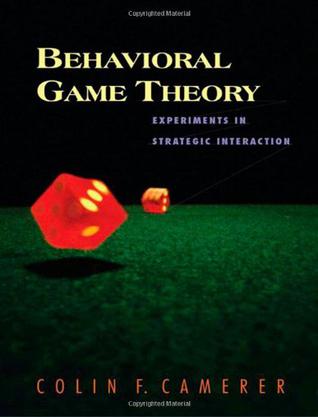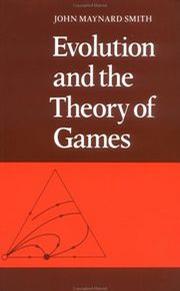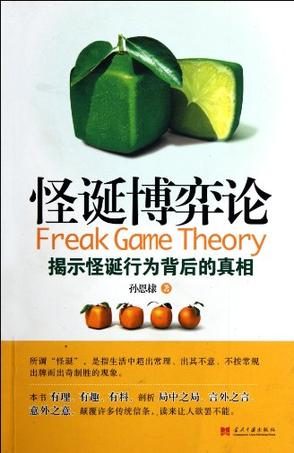-

Behavioral Game Theory
Game theory, the formalized study of strategy, began in the 1940s by asking how emotionless geniuses should play games, but ignored until recently how average people with emotions and limited foresight actually play games. This book marks the first substantial and authoritative effort to close this gap. Colin Camerer, one of the field's leading figures, uses psychological principles and hundreds of experiments to develop mathematical theories of reciprocity, limited strategizing, and learning, which help predict what real people and companies do in strategic situations. Unifying a wealth of information from ongoing studies in strategic behavior, he takes the experimental science of behavioral economics a major step forward. He does so in lucid, friendly prose. Behavioral game theory has three ingredients that come clearly into focus in this book: mathematical theories of how moral obligation and vengeance affect the way people bargain and trust each other; a theory of how limits in the brain constrain the number of steps of 'I think he thinks...' reasoning people naturally do; and a theory of how people learn from experience to make better strategic decisions. Strategic interactions that can be explained by behavioral game theory include bargaining, games of bluffing as in sports and poker, strikes, how conventions help coordinate a joint activity, price competition and patent races, and building up reputations for trustworthiness or ruthlessness in business or life. While there are many books on standard game theory that address the way ideally rational actors operate, "Behavioral Game Theory" stands alone in blending experimental evidence and psychology in a mathematical theory of normal strategic behavior. It is must reading for anyone who seeks a more complete understanding of strategic thinking, from professional economists to scholars and students of economics, management studies, psychology, political science, anthropology, and biology. -

Evolution and the Theory of Games
Professor John Maynard Smith has written an account of a new way of thinking about evolution which has been developed in the last ten years. The theory of games, first developed to analyse economic behaviour, is modified so that it can be applied to evolving populations. John Maynard Smith's concept of an evolutionarily stable strategy is relevant whenever the best thing for an animal or plant to do depends on what others are doing. The theory leads to testable predictions about the evolution of behaviour, of sex and genetic systems, and of growth and life history patterns. This book contains the first full account of the theory, and of the data relevant to it. The account is aimed at senior undergraduate and graduate students, teachers and research workers in animal behaviour, population genetics and evolutionary biology. The book will also be of interest to mathematicians and game theorists; the mathematics has been largely confined to appendixes so that the main text may be easily followed by biologists. -

怪诞博弈论
《怪诞博弈论》以博弈思维为纲,将现实生活中的各种怪诞行为娓娓道来。“怪诞”分为两种,一种是装疯卖傻,其背后是博弈思维;另一种属于人类自身难以克服的本能,它其实是对传统博弈论中“经济人”假设的挑战,属于最前沿的“行为博弈论”的范畴。《怪诞博弈论》不仅用博弈论对怪诞行为背后的玄机一一进行了解析,而且教会我们如何在生活、工作、与人相处中用博弈论分析问题、解决问题,从而实现个人利益最大化及最终的共赢。 -

哈林顿博弈论
《哈林顿博弈论》是美国最普及的博弈论教材,被美国多所知名高校长期采用,如斯坦福大学、宾夕法尼亚大学、佛罗里达州立大学、弗吉尼亚大学等。 《哈林顿博弈论》不仅适用于经济学、商学、政治学、国际关系学等博弈理论应用训练的传统学科,还面向大多数普通高校学生。教材用最小化的数学知识介绍博弈论的理论,使对数学领悟力不足的学生也能读懂。 《哈林顿博弈论》中还提供了各种各样的案例,包括历史、犯罪、体育和日常生活中的案例,并提供了丰富的背景介绍,内容丰富有趣,可读性强。 -

博弈论教程
正如宾默尔在这本《博弈论教程》中用大量例子和应用充分展示的那样,博弈论有利于弄懂人类各种各样的互动关系。这本新书是替代宾默尔前一本博弈论教材《娱乐和博弈》(Fun and Games)的。这本充满乐趣的博弈论入门教材适合高年级本科生或低年级研究生,着重回答这样三个问题:什么是博弈论?博弈论如何应用?博弈论为什么是正确的?《博弈论教程》也是唯一认真讨论全部这三个问题,又不过分数学化的一本书。《博弈论教程》的主题包括议价理论、不完美竞争、合作博弈、贝叶斯决策理论、不完全信息博弈、机制设计,以及拍卖理论。《博弈论教程》适合许多专业的学生,包括经济学、数学和哲学专业。为了方便其他专业学生的学习,在必要的地方会对所有三个学科的标准专题作一些回顾。《博弈论教程》的一个重要特征是配有大量习题,而且答案是可得的。 -

The Art of Strategy
Brilliantly demonstrated in "Thinking Strategically" [ISBN 978 0 393 31035 1], game theory is bursting with lessons for us all ("The Observer"). Here the authors provide the long-awaited sequel. Game theory means rigorous strategic thinking. It's the art of anticipating your opponent's next moves; knowing that your rival is trying to do the same thing to you. Though parts of game theory involve common sense, much is counterintuitive and it can only be mastered by developing a new way of seeing the world. Using case studies, the authors show how nearly every business and personal interaction has a game theory component to it. The authors look at questions such as whether the winners of reality-TV contests are instinctive game theorists or if big-time investors see things that most people miss and what great poker players know that the average person doesn't. Mastering game theory will make the reader more successful in business and life: this lively book is the key to that mastery.